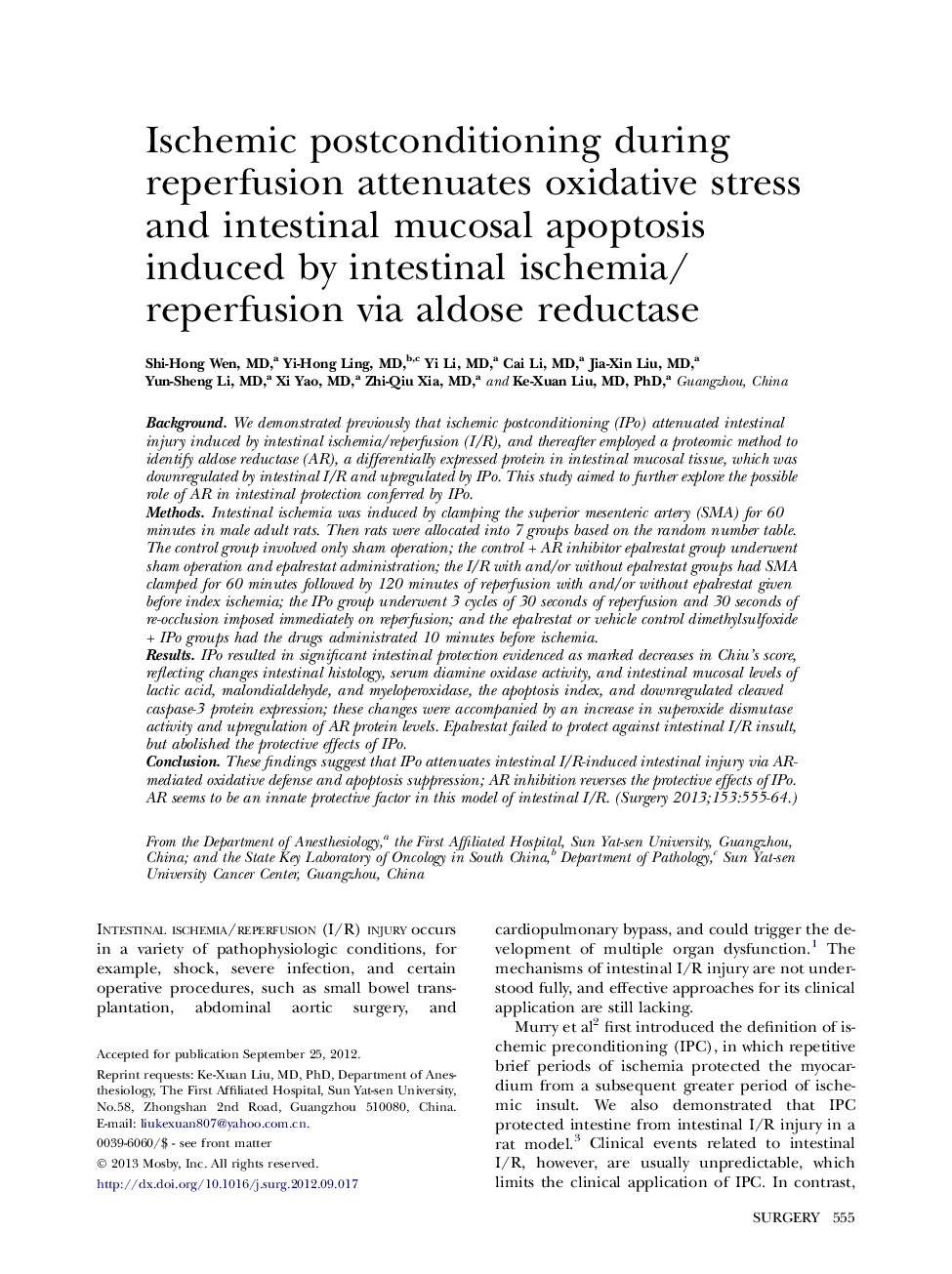| Article ID | Journal | Published Year | Pages | File Type |
|---|---|---|---|---|
| 4307775 | Surgery | 2013 | 10 Pages |
BackgroundWe demonstrated previously that ischemic postconditioning (IPo) attenuated intestinal injury induced by intestinal ischemia/reperfusion (I/R), and thereafter employed a proteomic method to identify aldose reductase (AR), a differentially expressed protein in intestinal mucosal tissue, which was downregulated by intestinal I/R and upregulated by IPo. This study aimed to further explore the possible role of AR in intestinal protection conferred by IPo.MethodsIntestinal ischemia was induced by clamping the superior mesenteric artery (SMA) for 60 minutes in male adult rats. Then rats were allocated into 7 groups based on the random number table. The control group involved only sham operation; the control + AR inhibitor epalrestat group underwent sham operation and epalrestat administration; the I/R with and/or without epalrestat groups had SMA clamped for 60 minutes followed by 120 minutes of reperfusion with and/or without epalrestat given before index ischemia; the IPo group underwent 3 cycles of 30 seconds of reperfusion and 30 seconds of re-occlusion imposed immediately on reperfusion; and the epalrestat or vehicle control dimethylsulfoxide + IPo groups had the drugs administrated 10 minutes before ischemia.ResultsIPo resulted in significant intestinal protection evidenced as marked decreases in Chiu's score, reflecting changes intestinal histology, serum diamine oxidase activity, and intestinal mucosal levels of lactic acid, malondialdehyde, and myeloperoxidase, the apoptosis index, and downregulated cleaved caspase-3 protein expression; these changes were accompanied by an increase in superoxide dismutase activity and upregulation of AR protein levels. Epalrestat failed to protect against intestinal I/R insult, but abolished the protective effects of IPo.ConclusionThese findings suggest that IPo attenuates intestinal I/R-induced intestinal injury via AR-mediated oxidative defense and apoptosis suppression; AR inhibition reverses the protective effects of IPo. AR seems to be an innate protective factor in this model of intestinal I/R.
